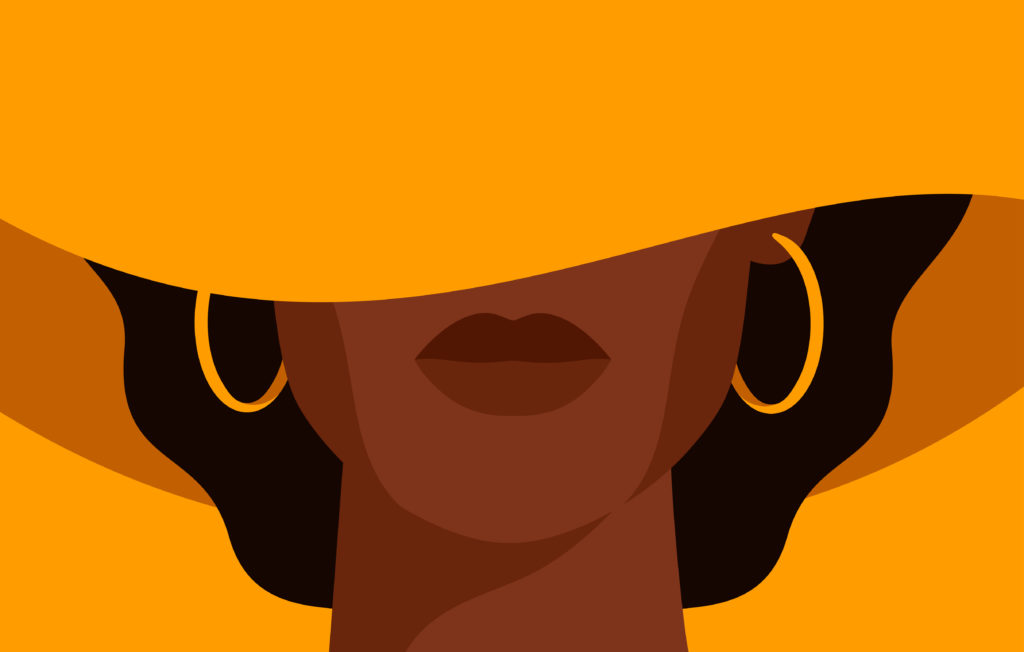Isn’t Black Representation What We Wanted?
“Don’t you think it’s funny how now the people making these ads get it?” I say to my best friend, my voice cradling the words “get it” with invisible quotation marks. We’re watching television, something we do together often now, grateful to be in each other’s bubble. “What?” she replies, looking up from her phone. “The models,” I say. “Oh, I know,” she says. We’ve been friends for twenty-eight years. She knows what I mean without my having to explain.
After yet another murder, one salve seemed to be representation. Between announcements of our crumbling democracy and more and more people dying, there were now ads with smiling Black faces. Black girls with crowns of 4c curls. Black women running businesses. Black men walking hand in hand down a suburban street with their Black and biracial daughters. It makes you wonder why Black people had to die in order to see ourselves reflected.
The Thanksgiving issue of The New Yorker features a little Black girl with a blue iris flower in her Afro holding an American flag with her sleeves rolled up. I’m caught off guard by the emotion it elicits. It makes me want to frame it. Keep it and one day show my daughter, if I have one. I stand in my mother’s house looking at the cover and wonder: Why does such a quotidian image make me want to cry? It isn’t just that it’s beautiful in the midst of the year’s chaos and pain. It’s because I can’t help wondering what it might have been like for me and my friend to grow up with images such as this one on a magazine like this one. Perhaps then I wouldn’t have been so caught off guard. The image could just have been beautiful, not uncommon.
Isn’t this what you wanted? That’s what I imagine the executives who made these decisions asking. Yes, but not at this price. I smile at the images, I’m glad for them, but they needn’t have come like this. They should have come before this. Without this. The taste in my mouth is bittersweet. I hate that guilt and corporate desire fuels change, rather than genuine understanding. Because if you understood, it wouldn’t have taken a murder of eight minutes and forty-six seconds to get us here.
In Pretend It’s A City, Fran Lebowitz tells Martin Scorsese that she doesn’t understand people who complain about not seeing themselves in books. “A book is not supposed to be a mirror,” she says, “it’s supposed to be a door.” I understand the sentiment, but I disagree with the argument. It’s the type of sentiment that can only be felt by someone who was unknowingly represented almost everywhere she turned. She didn’t know what she had.
In a conversation at the New York Public Library, Lebowitz talks with her friend, Toni Morrison, and the two discuss a bygone era of “the common reader,” people who used to be more open to receiving and entering the imaginary world of books, regardless of whether they spoke to the reader’s own experiences. “Many readers are looking for some replica of their lives,” Morrison says, a point, she notes, Fran herself makes often. But whereas Lebowitz writes in the second person as a resistance to inviting the reader in, Morrison says, “I am the reader of the books I write.” “Your other readers aren’t you,” Lebowitz pushes. And Morrison, laughing, replies, “Yes, they are.” She wants to invite the readers in, so that even though her books may not be exactly about their own lives, they represent a version of the world as she saw it. A version that was missing. Her books offer both a door and a mirror.
I didn’t read books as a child and demand to know, Where am I? The issue was that few books assigned to me in school ever said, Here you are. As a young person, I grew used to the books chosen in school where Blackness was present only if it was pointed out. The pointing it out was the point: it removed the idea that Blackness could ever be the default. Remember the jolt and pit you felt when you read that word in a book that your teacher described as a classic?
In 1959 James Baldwin wrote, “What the mass culture really reflects is the American bewilderment in the face of the world we live in.” If any word describes 2020, it may as well be bewilderment. There is the saying, “You can’t be what you can’t see.” But perhaps more accurate would be to say, “You notice what you don’t often see.” Walking down the street, a white man I passed yelled that my hair looked like Minnie Riperton’s. He meant it as an insult. I replied, “Thank you.” It is no accident our society requires legislation like the CROWN Act, which prohibits race-based discrimination based on hair. It is a direct reflection of the lack of representation.
As tempting as it may be to stew and worry about what might have happened if a segment of America had never woken up, it feels more productive to feel gratitude. Gratitude for the children who will hopefully grow up in a society that offers both mirrors and doors.
Because when people talk about representation, or reflections, or mirrors, they don’t mean, Replicate my exact experience. They mean, Make it ordinary to see someone who looks like me. Make it as common as it once was to see a friend. Make it so that I don’t even notice.
Maura Cheeks is a writer and researcher from Philadelphia.

